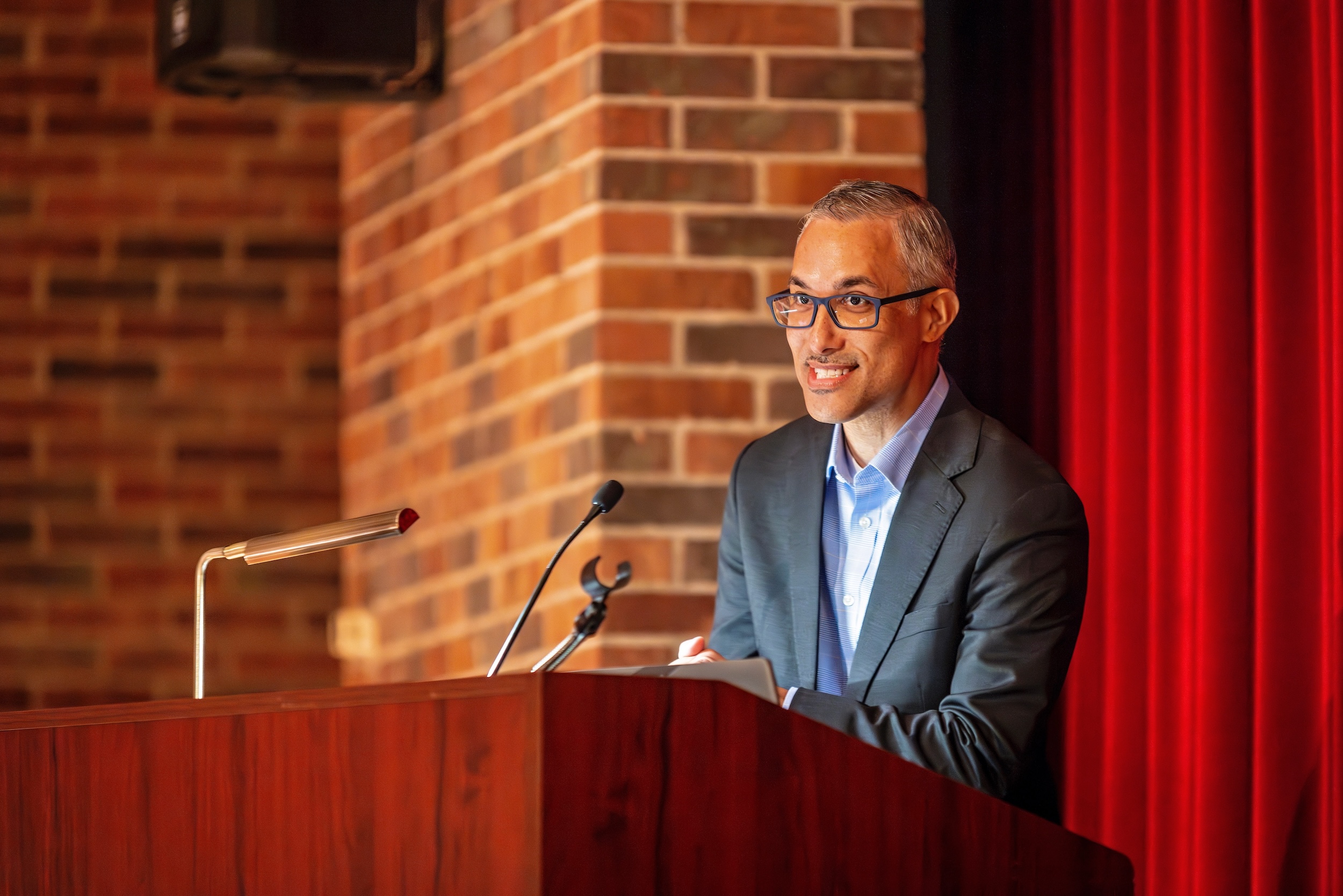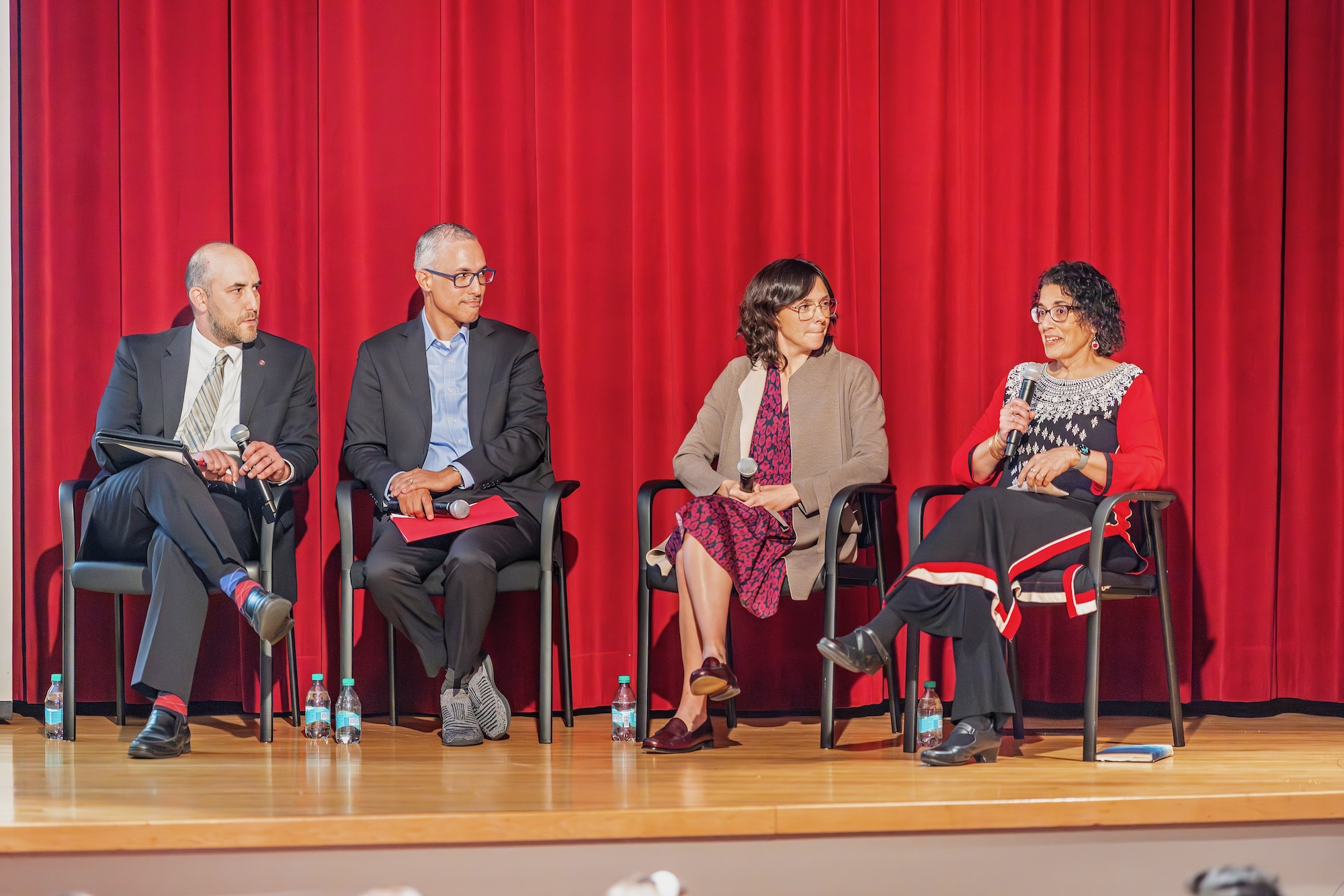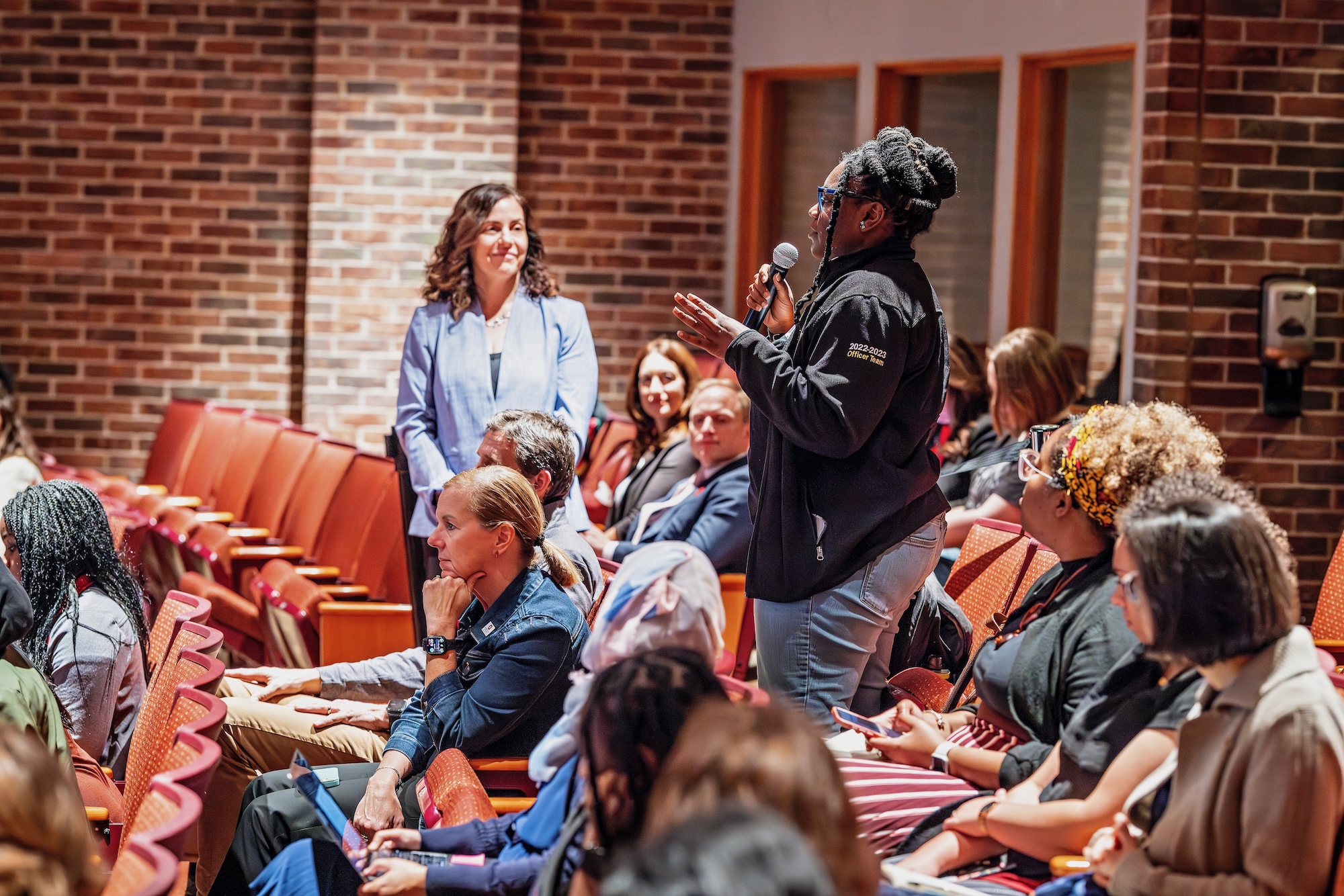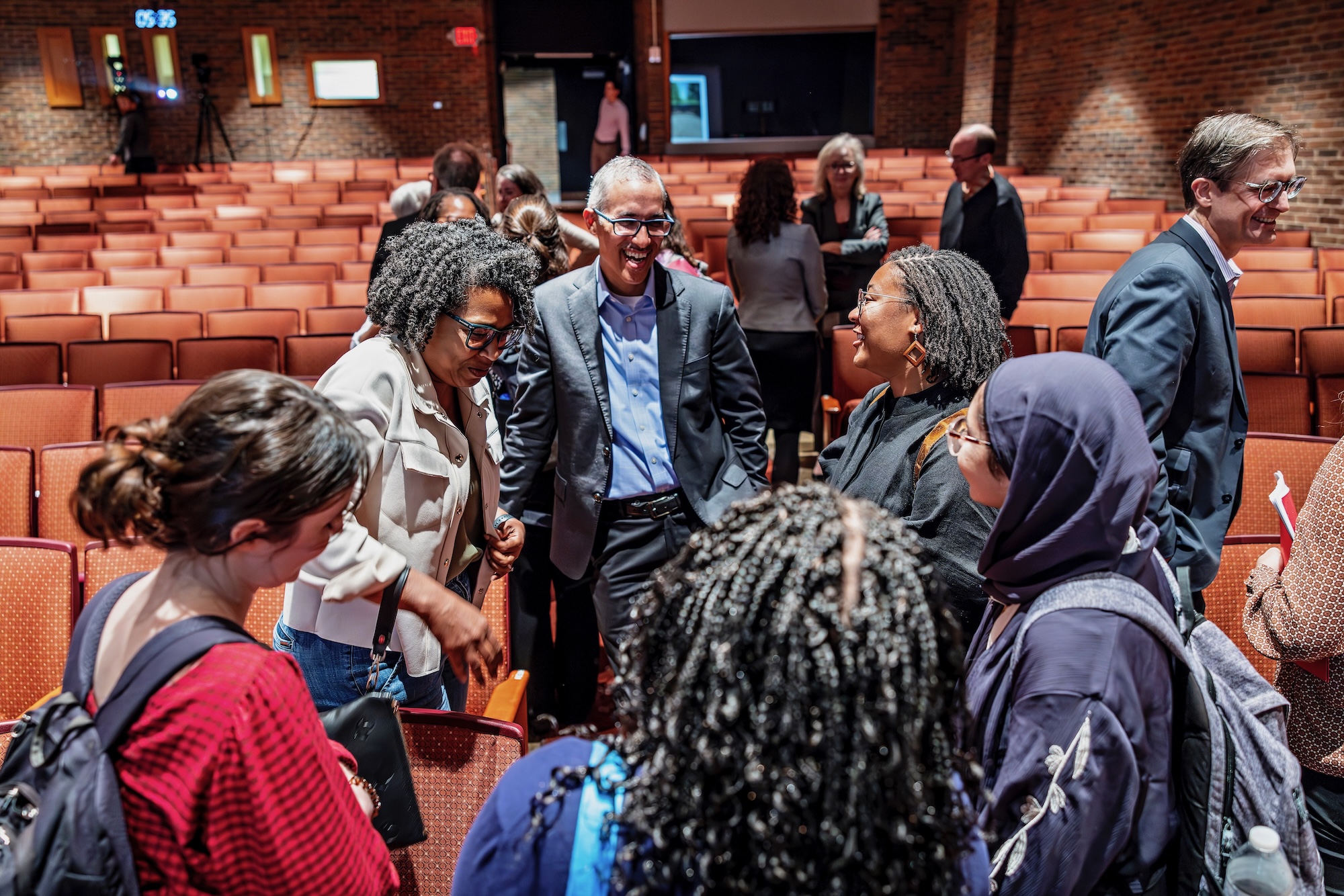Exploring the deep connections between politics, public health
“Changing the Conversation” event highlights policy opportunities
By Misti Crane

“Only policy can fix what policy broke in the first place,” Daniel Dawes told a crowd of more than 300 at the College of Public Health’s “Changing the Conversation” lecture at Ohio State’s Fawcett Center on Oct. 23.
The talk — and a panel discussion that followed — focused on the deep connections between public policy, the social factors that lead to health challenges and inequities, and the resulting status of Americans’ health and well-being.
Dawes, a national health policy expert, educator, researcher and author of “150 Years of ObamaCare” and “The Political Determinants of Health”, serves as senior vice president of global health and founding dean of the School of Global Health at Meharry Medical College in Nashville, Tenn.
Policy has had a positive influence on public health throughout the nation’s history, Dawes said, highlighting progress that coincided with women gaining the right to vote, the Civil Rights Act and the Americans with Disabilities Act.
But it also has been destructive, counterproductive and discriminatory, he said, offering examples including efforts to keep Black and indigenous people from raising their own food, gaining an education and earning their own money.
He also reminded the audience of the practice of redlining, when for decades the federal government denied people access to credit because of where they lived, even if they were personally qualified for loans. Historically, mortgage lenders widely redlined core urban neighborhoods and Black-populated neighborhoods in particular.
Poor whites, Blacks, Asian Americans, Latinos, the elderly, women, veterans and people with disabilities are among those who have faced struggles “to live in a society that has erected barrier after barrier to prevent them from reaching health equity,” Dawes said.
“These differences are not merely about genetics or individual choices. They are deeply rooted in social structures and policies.”
The good news? Policy can also be “a driving force for achieving health equity,” Dawes said.
After his talk, Dawes was joined by Associate Professor Lauren Jones of the John Glenn College of Public Affairs and Associate Professor Tasleem Padamsee of the College of Public Health for a conversation moderated by Micah Berman, the Stephen F. Loebs Professor in Health Services Management and Policy at the College of Public Health, and a professor of law.
Jones said that those in academia can and should strive to think about how their work can positively influence public policy, and that at times they may take for granted that evidence should naturally drive good policy.
“We find the truths that we work with self-evident. We need to really find a way to get out of that mindset and to find a way to make the messages compelling to our students, to the policy community and to our legislators,” she said.
Padamsee added to that idea, encouraging attendees to remain optimistic and to embrace opportunities when they present themselves – from offering scientific expertise when possible, to serving on advisory committees to interacting with local and state policy advocacy organizations to help them craft their messaging “in ways that policymakers can hear.”
About The Ohio State University College of Public Health
The Ohio State University College of Public Health is a leader in educating students, creating new knowledge through research, and improving the livelihoods and well-being of people in Ohio and beyond. The College's divisions include biostatistics, environmental health sciences, epidemiology, health behavior and health promotion, and health services management and policy. It is ranked 22nd among all colleges and programs of public health in the nation, and first in Ohio, by U.S. News and World Report. Its specialty programs are also considered among the best in the country. The MHA program is ranked 5th and the health policy and management specialty is ranked 21st.


